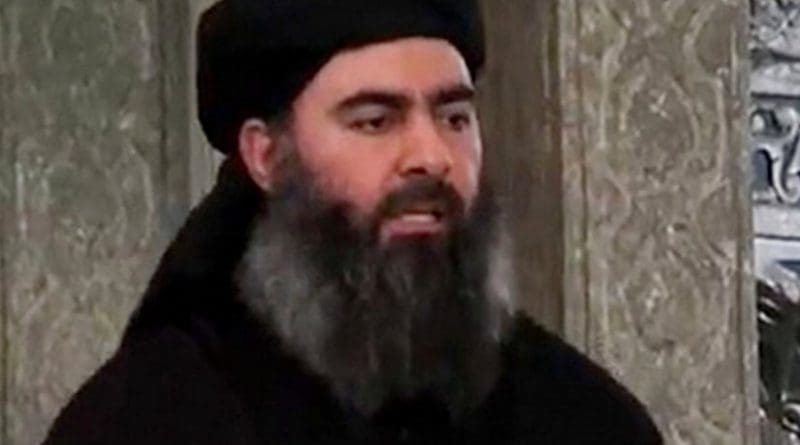Islamic State: Its Recognition In The Field Of International Law – OpEd
By A38
By Priyanka Vaidyanathan
It was in the dusk of the Iraq War of 2003 that ISIS had its genesis. The Iraq War was fought between the Baathist regime of Saddam Hussein and a coalition of the US, UK, Australia and Poland, led by the US. The USA alleged that Iraq had developed and secretly stored Weapons of Mass Destruction and that Saddam Hussein had supported a terrorist organisation. This paved the way for the US to overthrow a regime. There were many allegations to Saddam Hussein’s antagonistic treatment of the Shiites in his regime, though was known to the outer world of being a secular ruler [1]. This created a chasm in Iraq between the Shiite and the Sunni Muslims by the downfall of a tenacious Sunni regime.
Parallel to this ran Jordanian fanatic Abu Musab Al-Zarqawis’ (sunni) thirst to create his own terror organisation, by taking advantage of the vacuum created in Iraq with respect to whether there should be a shia rule or a sunni rule, he joined hands with Al-Qaeda to form “Al-Qaida in Iraq”( AQI) he had a strong malevolence against Shia Muslims thus forming a audacious Anti-Shia – Sunni group.
AQI indulged in bombing Shia holy places thereby amplifying the mutual hatred. By the unforeseen death of Zarqawi due to the bombing by US, Abu Bakr al-Baghdadi rose as the next leader, who pronounced himself as a ‘caliph’, renaming AQI as Islamic State in 2011.[2] Further, another branch of Al-Qaeda, Al-Nusrat, was formed in Syria in late 2011[3] which supported the rebels in Syria, this was headed by an AQI operative, which gained immense support in Syria, amidst this massive support Islamic state collaborated itself with Al-Nusra and gained the name Islamic State of Iraq and Syria. It is imperative to note that ISIS has a strong military group, where the Caliph himself was in the Baathist Army and other ex-members of the regime.[4] This was a catalyst for the booming robust power.
The first successful step in an international platform was the recognition of the Islamic State as an insurgent group by US, Iran, Iraq, Turkey and neighbouring Arab states. Recognition of insurgency occurs out of necessity when the interests either of the de jure government or a third state are affected by the conflict, requiring the establishment of relations with the insurgent party.
ISIS elevated from it being an insurgent group and reached a penultimate stage of being a state by partially fulfilling the ‘criteria of a state’. According to Article 1 of the Montevideo Convention, prerequisite of a state are Population, Territory, Government and Independence. ISIS in its own organization has an estimated 25,000 operatives in Syria and Iraq[5], it controls 50% of Syria[6] and about two third of Iraq[7], it has established endemic governance wherein they collect tax, give their own identity card, they have their own schools and prescribed curriculum, and well established local governance, with this set up ISIS achieved to attract more number of people to its territory, it is an equal opportunity organization, this beget them to be a de facto state.
A de facto state is a secessionist entity that receives popular support and has achieved sufficient capacity to provide governmental services to a given population in a defined territorial area, over which it maintains effective control for an extended period of time. A de facto state has impact over international system mainly in two ways, in area of conflict and political economy, ISIS has been prosperous in this regard, by indulging in armed conflict with the US, Russia, Iraq and Syria and the instability in Middle East has created an impact on global political economy due its depreciating oil export[8].
But the crunch arises regarding the international recognition of ISIS as a state. According to Article 10 of the Montevideo Convention primary interest of state is, recognition of peace which is not seen as they believe in jihad, to exterminate the nonbelievers, further according to Article 11[9] other states are obligated not to recognize a state which has indulged in employment of arms and has territorial acquisition by force, ISIS is successful in gathering arms[10] to defend itself and apocalypse – eradicate non believers , thus ISIS would be ‘sui generis’ – a special entity by itself. Owing to its status as a sui generis entity it qualifies to be a pseudo state, and not in its entirety. This is because it does not have the capacity to enter into a treaty or any negotiations with nation states, due its very own aggressive character and gross human rights violation.
The main hitch in ISIS’ performance as a pseudo state is its inhuman atrocities towards mankind. It is especially appropriate to call for an armed group to respect human rights norms when it exercises significant control over territory and population and has an identifiable political structure[11]”.
Hence, regardless the intention, the foreplay by the coalition has led to more unknown unforeseen disastrous situation giving birth to a species – ISIS. Growing up to be a subject of International Law it is obligated to abide responsibilities, and it is for the better good that UN should curtail its growth owing to its violent character and reinstate peace. It is for the international community to slash the growth of a non state actor to a state actor, by realising idealistic utopian aim of ISIS – radicalisation of jihad.
[1] http://www.theglobeandmail.com/news/world/sunni—shia-divide-explained/article19337058/
[2] http://www.theatlantic.com/international/archive/2014/08/isis-a-short-history/376030/
[3] https://web.stanford.edu/group/mappingmilitants/cgi-bin/groups/view/493
[4] http://www.dailymail.co.uk/news/article-3028529/Saddam-Hussein-s-revenge-grave-ISIS-s-land-grab-Middle-East-orchestrated-former-Iraqi-dictator-s-generals.html
[5] ISIS: Portrait of a Jihadi Terrorist Organization
[6] http://www.theguardian.com/world/2015/may/21/isis-palmyra-syria-islamic-state
[7] http://securitydata.newamerica.net/isis/analysis.html
[8] http://www.businessinsider.com/isis-is-making-the-biggest-threat-to-oil-prices-even-worse-2015-5?IR=T
[9] https://www.ilsa.org/jessup/jessup15/Montevideo%20Convention.pdf
[10] https://www.quora.com/Why-is-ISIS-not-running-out-of-weapons-and-ammunition-Where-do-they-continue-getting-arms
[11] The Rights and Responsibilities of Armed Non-State Actors: The Legal Landscape & Issues Surrounding Engagement Andrew Clapham Geneva Academy of International Humanitarian Law and Human Rights

